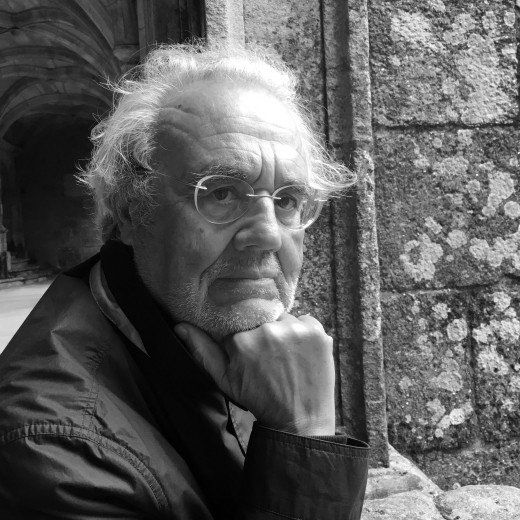Orient
Original title: Oriente
Manuel Gutiérrez Aragón’s eight fascinating stories move between the real and the wonderful exploring his creative universe.
These eight stories range from the everyday to the fantastical, real to the surreal. A quiet, operatic evening at Madrid’s Teatro Real turns into a confinement where darkness reigns and there is no possibility of communicating with the outside world. A visit to a pilot friend turns into an unexpected trip to the other side of the world, the sky of Seville is filled with marine animals, and a strange guest—a nestrovich—can alter the lives of a family to unexpected limits. There is, of course, also room for cinema, like in the story where a producer embarks on a film about Muhammad financed by Saudi Arabia, or that other one set in a dark booths where all kinds of characters come together: students fleeing from the police, prostitutes, masturbators, homosexuals, and the writer Azorin, a great fan of the seventh art.
Also present are art and the need for storytelling, as in the evocation of a friend from adolescence who was a math genius and met his tragic end on a beach, or in the story where a grandmother explains to her grandson about her love affairs in Cuba, debating between two prospects. The eight pieces that make up this volume confirm the talent of Manuel Gutiérrez Aragòn, who years ago moved from cinema to literature without a hitch, and has now gifted us multiple splendid books that are now accompanied by this volume.
«A great narrator: first through images, now words» (Manuel Vicent).
Manuel Gutiérrez Aragón’s eight fascinating stories move between the real and the wonderful exploring his creative universe.
These eight stories range from the everyday to the fantastical, real to the surreal. A quiet, operatic evening at Madrid’s Teatro Real turns into a confinement where darkness reigns and there is no possibility of communicating with the outside world. A visit to a pilot friend turns into an unexpected trip to the other side of the world, the sky of Seville is filled with marine animals, and a strange guest—a nestrovich—can alter the lives of a family to unexpected limits. There is, of course, also room for cinema, like in the story where a producer embarks on a film about Muhammad financed by Saudi Arabia, or that other one set in a dark booths where all kinds of characters come together: students fleeing from the police, prostitutes, masturbators, homosexuals, and the writer Azorin, a great fan of the seventh art.
Also present are art and the need for storytelling, as in the evocation of a friend from adolescence who was a math genius and met his tragic end on a beach, or in the story where a grandmother explains to her grandson about her love affairs in Cuba, debating between two prospects. The eight pieces that make up this volume confirm the talent of Manuel Gutiérrez Aragòn, who years ago moved from cinema to literature without a hitch, and has now gifted us multiple splendid books that are now accompanied by this volume.
«A great narrator: first through images, now words» (Manuel Vicent).
